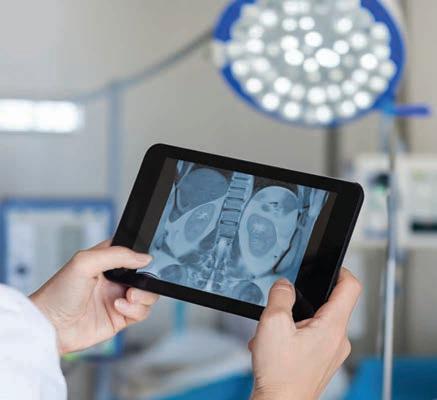
2 minute read
What is Artificial Intelligence (AI) and how will it impact medical care?
Generative artificial intelligence (GenAI) has had a lot of press over the last few years. In this edition, we are discussing technology and innovation, so it is only right we touch on few of the ways you might see artifical intelligence (AI) interacting with your medical treatments in the coming decade.
Note-taking and paperwork.
Some doctors and other health professionals are already using AI to help them keep a written record of their consults—saving time on typing notes and allowing them to give the patient their full attention during the appointment. It can also be used for admin tasks and to help organise patient records, picking up human error and alerting them to missing information. If your doctor uses AI to help take notes, they always have to manually check that it is written correctly. Audio recordings are not typically stored and are subject to the same data protection laws as your medical record.
Reading/diagnosing medical scans and results.
Research is being done on using AI to read MRI scans, x-rays and ultrasounds, etc. The AI-powered programs can process a huge amount of data in seconds and the theory is that they could save doctors time analysing scans, allowing them to treat more patients and get important results back to them much quicker. Be assured, while AI might suggest a result from a scan or test, it is still the responsibility of the experienced doctor to confirm the diagnosis.
Medical research and drug development.
AI can read millions of complex data sets very quickly which gives it the ability to spot patterns which are not always obvious to humans. Because of this it will be a huge asset to medical research. It could lead to earlier diagnosis of diseases, saving patients and healthcare systems money on costly treatments, and cut budgets needed to get new treatments and pharmaceutical drugs to market.
WARNING: Using AI to research your health symptoms and conditions is not recommended. Always consults a health professional.
Call the National Continence Helpline for free confidential advice 1800330066 (Mon-Fri 8am-8pm AEST).






